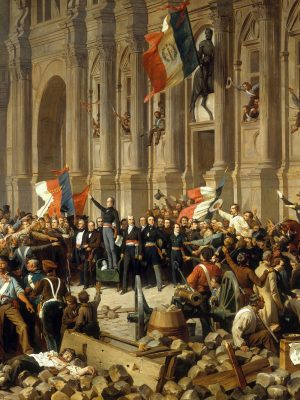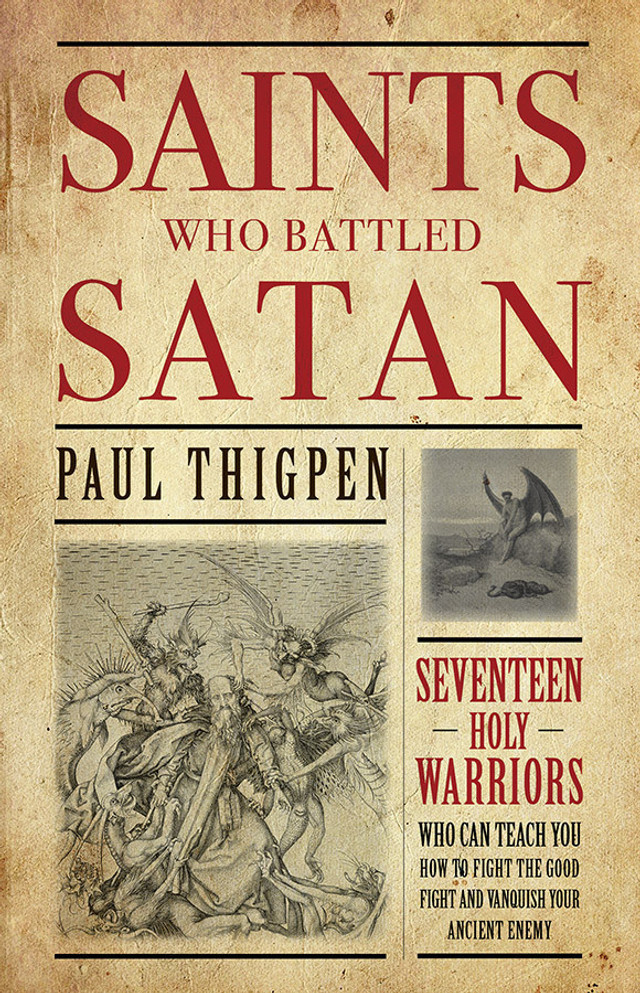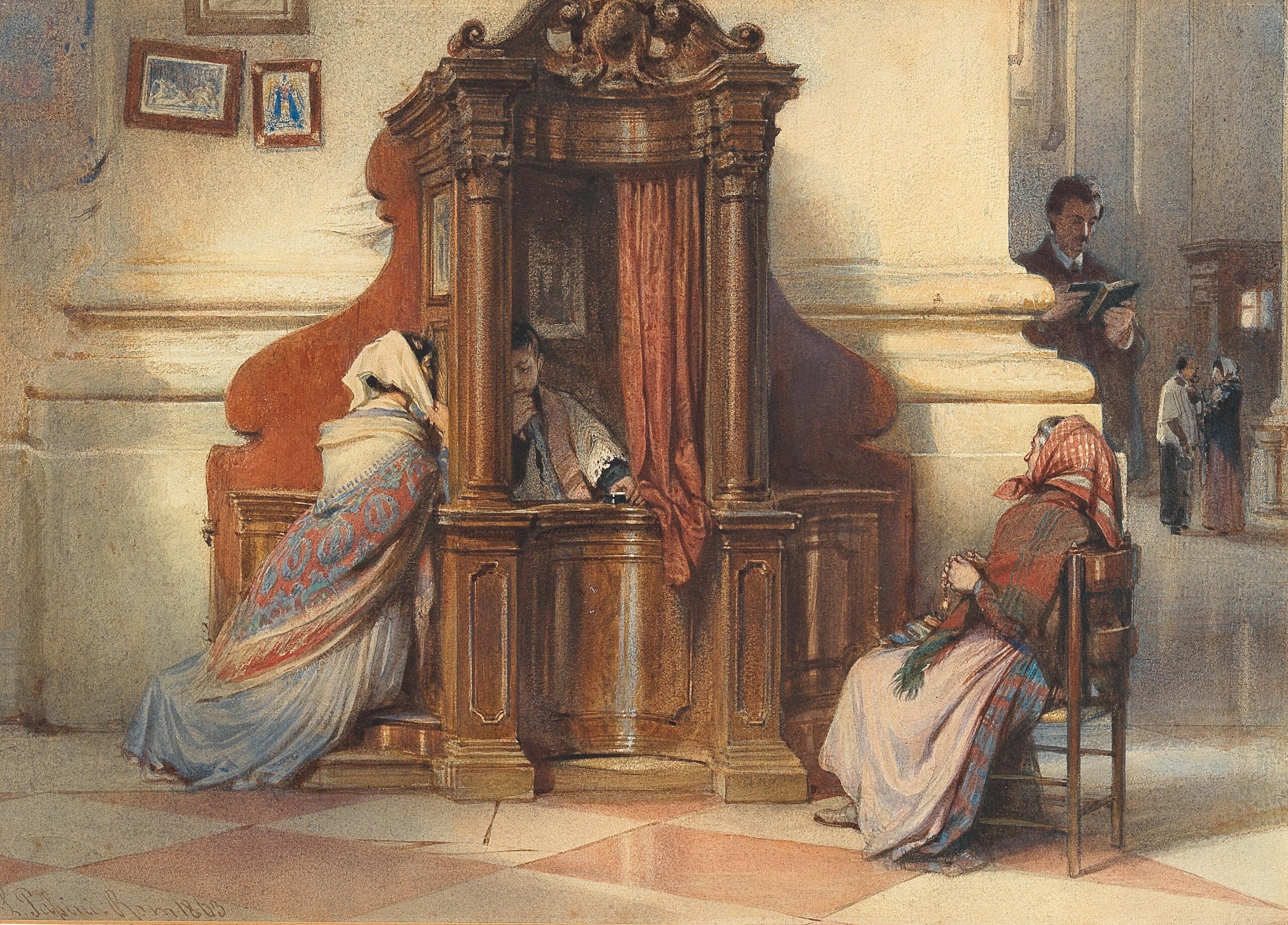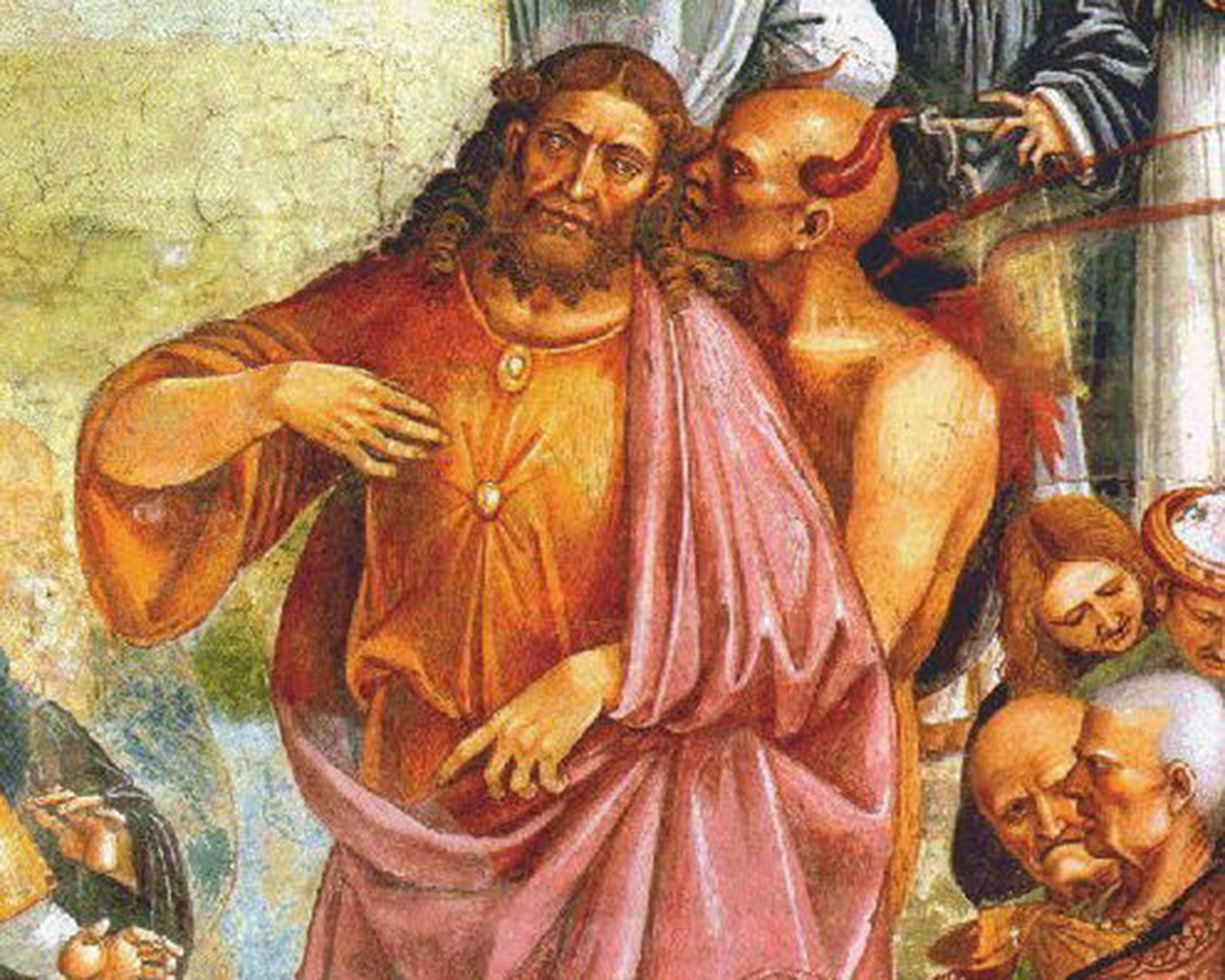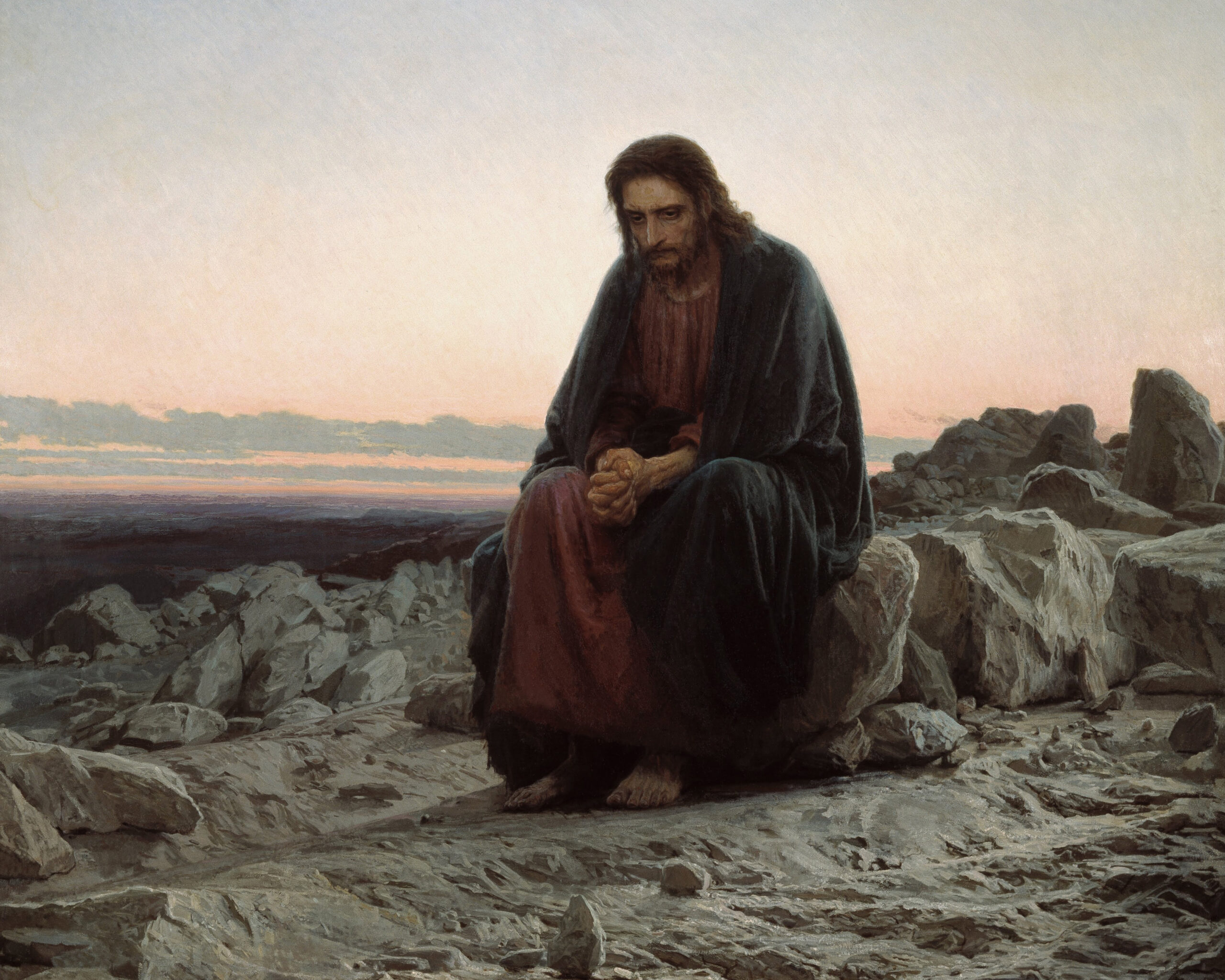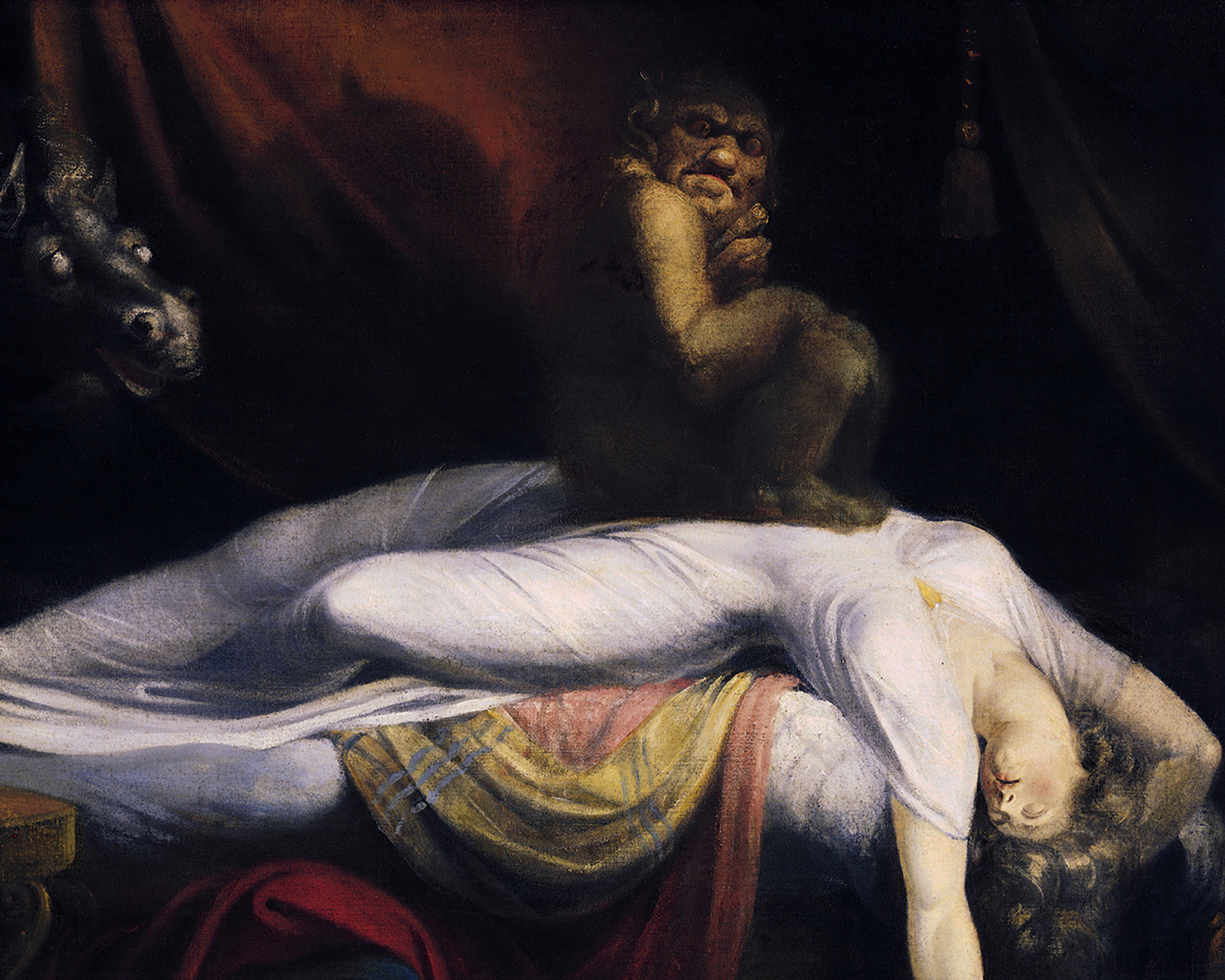Today, on the Feast of St. John Vianney, discover the Cure of Ars’ engagement in spiritual warfare. This excerpt from Saints Who Battled Satan tells the triumphant story of a priest who combatted demons in the political, spiritual, and personal realms.
The Devil And The French Revolution
The intellectual movement now called the Enlightenment no doubt brought illumination to some aspects of life in the Western world throughout the eighteenth century. Science became more rigorous in its methods. Political philosophers opened up new horizons that ultimately led to the establishment of the American republic and a more vigorous notion of political liberty.
But the Enlightenment had its terrifying shadows as well. With roots, some have argued, in Martin Luther’s revolt against the Church’s authority, many of the leaders of the Enlightenment movement saw the Catholic Church as the enemy of reason and progress. The bitter fruit of that animosity was evident most clearly in France. There, the Revolution of 1789 to 1799, overthrowing the monarchy, led to the brutal oppression of faithful Catholics.
During the aptly named Reign of Terror in 1793 and 1794, the Devil used the revolutionaries and the mobs they stirred up as his pawns to assault the Church. Priests and religious leaders were imprisoned and massacred; churches and other Catholic properties throughout the nation were either confiscated or destroyed. An attempt was even made to establish a “Cult of Reason” to replace the Catholic faith altogether, with its own rites and festivals eclipsing religious ones.
Counter-rebellions emerged throughout France. Faithful Catholics hid priests from the authorities, resisted the activity of revolutionary agents, and in some cases, even took up arms. But it was not until 1801, after Napoleon rose to power, that the French government once again made its peace, however uneasy, with the Church.
An Unlikely Candidate For The Priesthood
It was in fact a young soldier in Napoleon’s army who was to become the most famous spiritual warrior of post-Revolutionary France. John Vianney had been born during the Revolution and raised in a devout Catholic family of farmers that had traveled to distant farms in order to celebrate Masses in secret. He grew up admiring priests as spiritual war heroes because they risked their lives to minister to the people.
Field Hospital Medic
The ancient Enemy had made sure that the Enlightenment and the bloody Revolution took their toll on the faith of the people. Such a prolonged and furious assault on the Church had contributed to widespread religious ignorance and indifference. Even in the rural area where John was ministering, far from the notorious temptations of life in the big city, the Devil was busy. John’s counterattack employed two primary strategies: preaching and hearing confessions. His hard-hitting sermons offended many. But he refused to back down from his condemnations of pride and hypocrisy, laziness and materialism, impurity and drunkenness, and even gossip. Despite considerable human opposition and the Devil’s attempts to harden hearts, many were converted by John’s preaching. As a result, the confessional at Ars became a field hospital for those who had been wounded on the spiritual battlefield. Eventually, John’s reputation as a confessor and spiritual director spread beyond Ars, and people came from far away to receive his counsel. So great was his fortitude that he often spent sixteen to eighteen hours a day hearing confessions.
The Disturbances Begin
Soon after John opened an orphanage in the village, strange noises began to disturb his rest at night. He later reported:
“About nine o’clock at night I was just going to bed when the demon came to torment me for the first time. Three heavy blows were struck on the door of my courtyard, as if someone were trying to force it open. I opened my window and asked, ‘Who’s there?’ But I saw nothing, so I commended myself to God and quietly retired.
“But before I’d gone to sleep, I was startled again by three knocks that were louder still—not now on the outer door, but on the one at the staircase that led to my bedroom. I got up and cried out a second time, ‘Who’s there?’ No one answered.
“When these noises at night first began, I thought they were caused by burglars, so I thought I’d better take some precautions. I asked two brave men to sleep in the house who were ready to help me if I needed them. They came several nights in a row.
“They heard the noise but found nothing. So they were convinced that it had some causes other than the malice of men. I myself soon came to the same conclusion. One night in the middle of winter, I heard three violent knocks. I got up quickly from my bed and went down into the courtyard, expecting to see the intruders making their escape, and intending to call for help. But to my astonishment, I saw nothing, I heard nothing, and even more, I found no traces of footprints in the snow. So I resigned myself to God’s will, asking Him to be my guard and protector and to surround me with His angels if my Enemy should return again to torment me.”
Fears Of Damnation
Before this period, poor John had been prey to a different kind of conflict. He had been tormented by the most despairing thoughts of his future destiny. He seemed continually to see under his feet the lake of fire and to hear a voice telling him that his place was already marked in it.
Day and night, John was haunted by the fear of being eternally lost. But after having combated and overcome this internal temptation, he had less difficulty in resisting his external, though invisible, foes. Still, the oppression to which he was now subjected was no light one. It lasted not for days or months but for thirty-five years, with different phases and under different forms, but almost without even temporary relief.
The saint took it all in stride and learned how to deal with his tormentors. “The demon is very cunning,” he once observed, “but he is not strong. Making a Sign of the Cross soon puts him to flight. A few days ago he made an uproar, like the sound of all the carriages in Lyons driving over my head. Only last night, whole troops of demons were shaking my door and babbling like an army of Austrians. I didn’t understand a word they said. But when I made the Sign of the Cross, they departed.”
ooo
This article is taken from a chapter in Saints Who Battled Satan by Paul Thigpen which is available from TAN Books.


